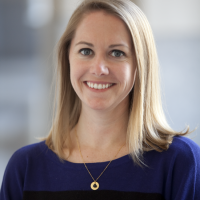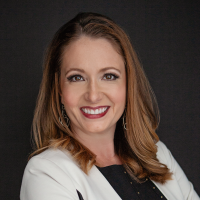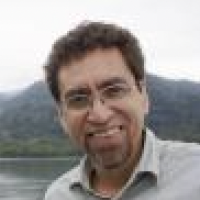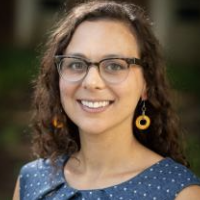Climate Change, Population, and the Shape of the Future
Submit a question
As the world’s attention has turned in November 2022 to the UN COP 27 climate change conference, another important global milestone is also drawing attention. Today, November 15, 2022, the global population is predicted to reach 8 billion. By 2050, it will be 9.7 billion.
Yet while it’s natural to focus on linkages between population growth and climate change, experts speaking at the Wilson Center’s recent “Climate Change, Population, and the Shape of the Future” event also observed that the relationship is far from simple. Creating a more nuanced discussion is imperative to prevent oversimplifications and outright damage to efforts to fashion effective responses.
“The idea that population growth is causing climate change is really harmful, [and] puts the blame on places in the world with the highest rates of fertility, which are precisely the places that contribute the least to climate change,” said Heather Randell, Assistant Professor of Rural Sociology & Demography at Penn State University.
Yet population growth and climate change are undeniably interlinked, and exploring the connection is essential. “To adapt well to a warming world, it’s critical that we understand and include population dynamics in climate responses,” said Lauren Risi, Director of the Environmental Change & Security Program at the Wilson Center. “Doing so not only ensures more effective responses, but [also] allows us to see solutions that we may have otherwise been blind to.”
Seeking Momentum in Connections
So how can the discussion of population and climate push past what Kathleen Mogelgaard, President and CEO at the Population Institute, called “doom and gloom population alarmism?”
Local efforts to craft holistic responses to the pressures exerted by population growth and climate emergency in Uganda and Guatemala are showing considerable promise. These efforts go past merely breaking the silos that have kept the dialogues surrounding population and climate separate in order to blend them together into more effective interventions.
Overcoming the “departmentalized” nature of institutions has led to challenges in Uganda and in Eastern Africa more generally, observed Charles Kabiswa, Executive Director of Regenerate Africa. He said that his organization’s efforts to integrate population dynamics, gender equity, and access to family planning into Uganda’s national climate change policies have required time to bring “strategic stakeholders on board to appreciate the interconnectedness” of climate and population.
Kabiswa noted that thousands of people have succumbed to silent deaths from hunger in East Africa in recent years, mostly because two seasons of failed crops caused by climate effects. Regenerate Africa’s response has been to create projects such as the Lake Victoria Basin Initiative, which integrates health and education into biodiversity conservation efforts.
The greater integration of family planning, reproductive health, and education featured in the Lake Victoria Basin Initiative has not only bolstered overall resilience in the communities where it operates, but it also improves standards of sanitation and hygiene in the region’s households and schools. Kabiswa added that the program’s success also has given momentum to proposals to shift policy in his country as well.
Bringing Women’s Issues into Focus
Marco Cerezo, General Manager of the Guatemala-based Foundation for Eco-development and Conservation (FUNDAECO), said that his organization originally started out purely as a conservation NGO, yet it quickly changed tack once it connected the dots between climate change and women’s health and education issues.
Mortality rates for women in rural and isolated forests and villages in Guatemala are among the highest in Latin America, he explained, so an urgent question presented itself: How could FUNDAECO mobilize the energy of local communities—and especially women—for conservation and community development when they suffered from conditions that spurred such poor health and education outcomes?
Cerezo said that his organization’s answer was to integrate community issues, including education and health, into its conservation-focused program in substantive ways. For instance, FUNDAECO’s Guatemalan Conservation Coast carbon credits project creates an explicit linkage between them. “When you buy a carbon credit from our Conservation Coast project, you’re actually funding sexual and reproductive health clinics for women in rural areas, and you’re actually funding scholarships for young girls in rural villages so that they can finish their secondary and high school education,” he said. “So a carbon credit— which is a climate change intervention—becomes a concrete tool to support women’s empowerment.”
Such interconnections promote a “virtuous circle” that can help break the “vicious” circle of poverty, environmental degradation and increased vulnerability to climate change in ways that can change individual lives as well.
“A young girl who was going to be given in a forced marriage at fourteen was able—with the support of our program—to start studying,” Cerezo said. “And she is now graduating as an environmental engineer…and she wants to help fight climate change.”
Reframing the Narrative
Kabiswa noted that the work now being undertaken in Uganda, Guatemala and elsewhere demonstrates that local and regional actors need not wait for global parties to act first. “We don’t need to wait for the call,” he said. “We should be doing something at national level.”
The payoff realized by these efforts to better integrate of climate and population issues is already clear. “What’s really great from a climate and governance standpoint is those efforts at family planning, reproductive health, and education yield tremendous social and economic dividends that can really help make communities more resilient in the face of environmental change,” said Jennifer D. Sciubba, a Wilson Center Fellow and the author of 8 Billion and Counting: How Sex, Death, and Migration Shape Our World. “It’s a win-win-win.”
Making these tangible connections can spur a more nuanced discussion of these issues at COP27 and beyond, and perhaps even set the stage for more effective interventions. “Framing population growth as the main driver of climate change really diverts attention from the main culprit which is global capitalism, fossil-fuel-based economies, and over-consumption,” said Randell.
As Mogelgaard observed in closing remarks, this work also holds the promise of a new narrative “based in hope, based in understanding the rights, opportunities, and services that are available to this generation that’s coming up, and particularly the ways that we can reinforce the rights and opportunities for women and girls, who are important change makers in their communities.”
Continue the conversation on Twitter @NewSecurityBeat. Find related coverage of these issues on our blog, NewSecurityBeat.org.
Introduction

Moderator

Panelists



Hosted By

Environmental Change and Security Program
The Environmental Change and Security Program (ECSP) explores the connections between environmental change, health, and population dynamics and their links to conflict, human insecurity, and foreign policy. Read more


Maternal Health Initiative
Housed within the Wilson Center's Environmental Change and Security Program, the Maternal Health Initiative (MHI) leads the Wilson Center’s work on maternal health, global health equity, and gender equality. Read more


Africa Program
The Africa Program works to address the most critical issues facing Africa and US-Africa relations, build mutually beneficial US-Africa relations, and enhance knowledge and understanding about Africa in the United States. The Program achieves its mission through in-depth research and analyses, public discussion, working groups, and briefings that bring together policymakers, practitioners, and subject matter experts to analyze and offer practical options for tackling key challenges in Africa and in US-Africa relations. Read more


Global Europe Program
The Global Europe Program is focused on Europe’s capabilities, and how it engages on critical global issues. We investigate European approaches to critical global issues. We examine Europe’s relations with Russia and Eurasia, China and the Indo-Pacific, the Middle East and Africa. Our initiatives include “Ukraine in Europe”—an examination of what it will take to make Ukraine’s European future a reality. But we also examine the role of NATO, the European Union and the OSCE, Europe’s energy security, transatlantic trade disputes, and challenges to democracy. The Global Europe Program’s staff, scholars-in-residence, and Global Fellows participate in seminars, policy study groups, and international conferences to provide analytical recommendations to policy makers and the media. Read more


Latin America Program
The Wilson Center’s prestigious Latin America Program provides non-partisan expertise to a broad community of decision makers in the United States and Latin America on critical policy issues facing the Hemisphere. The Program provides insightful and actionable research for policymakers, private sector leaders, journalists, and public intellectuals in the United States and Latin America. To bridge the gap between scholarship and policy action, it fosters new inquiry, sponsors high-level public and private meetings among multiple stakeholders, and explores policy options to improve outcomes for citizens throughout the Americas. Drawing on the Wilson Center’s strength as the nation’s key non-partisan policy forum, the Program serves as a trusted source of analysis and a vital point of contact between the worlds of scholarship and action. Read more


Middle East Program
The Wilson Center’s Middle East Program serves as a crucial resource for the policymaking community and beyond, providing analyses and research that helps inform US foreign policymaking, stimulates public debate, and expands knowledge about issues in the wider Middle East and North Africa (MENA) region. Read more

